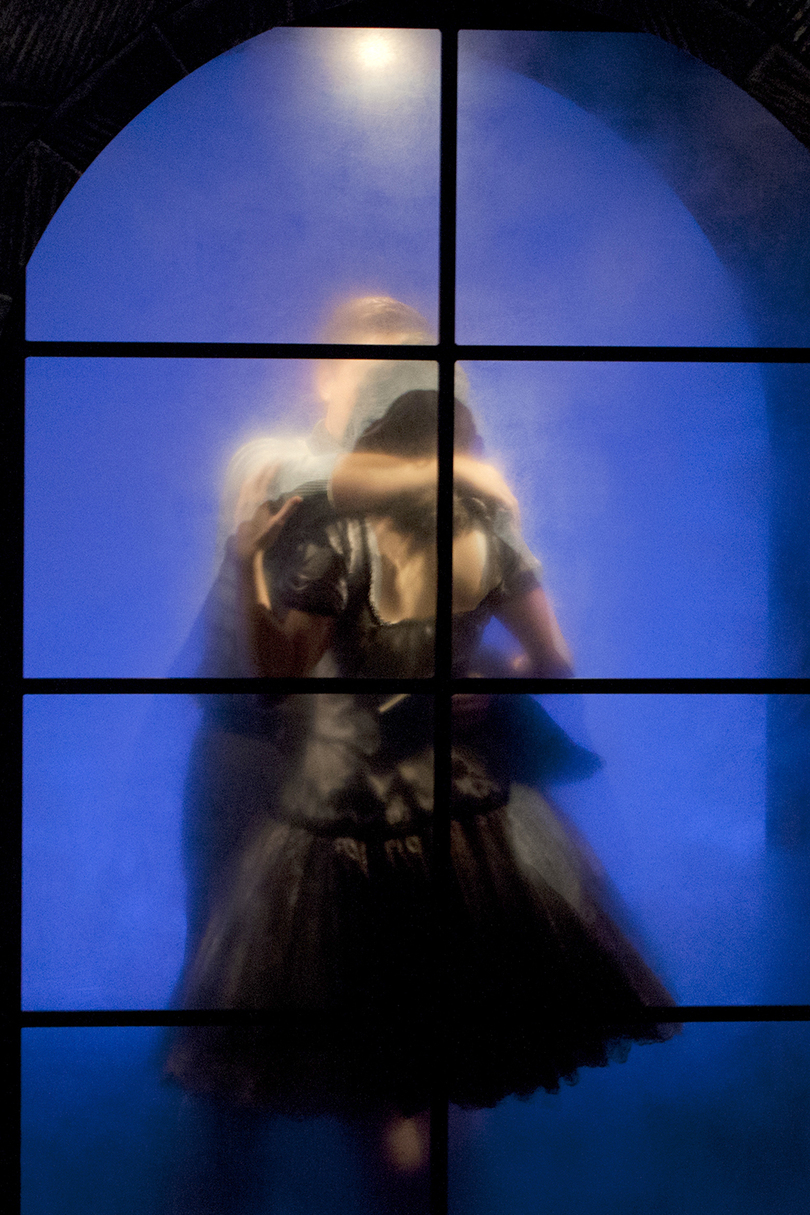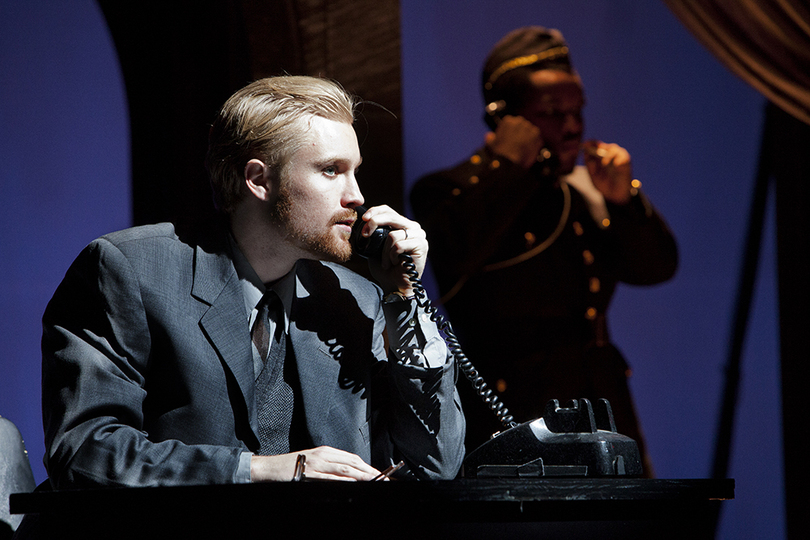Talented cast of student show brings controversial topics to life on stage in ”Tis Pity She’s a Whore’
Incest, murder, betrayal and ill-fated plots full of suspense. Syracuse University Department of Drama’s modern interpretation of John Ford’s risque and controversial play “’Tis Pity She’s a Whore” is every bit as intriguing as the name would suggest.
First performed in 1633, the complex play was not held in high regard due to its treatment of incest. SU Drama creatively updated the suspenseful tragedy for a modern audience, but maintains its original artistic integrity. Shakespeare fans will appreciate the similar themes of incest, fate, loss of innocence and uncertainty. The play has elements of “Hamlet” as well as “Romeo and Juliet,” but is dark, sexual and even more tragic.
Set in Italy, the stage resembles a Roman Catholic church with some interesting architectural details. The lighting that is projected onto the floor gives the appearance of the sun shining through stained-glass windows, which has a gothic lace design almost resembling bats. Beyond the front corner of the stage sits a baby grand piano used for the setting of a club with cafe tables and chairs. Another major set piece, a pedestal, serves as a statue’s home, the club’s stage and a bed. It certainly is not in danger of being underused.
Before the Nov. 2 production begins, the cast sings soulful renditions of popular music by artists like Adele and Amy Winehouse. It’s evident that the small cast is wildly and diversely talented. Beyond his or her impressive acting skills, each cast member has, at the very least, a wonderful singing voice. Several cast members erase the need for a band by producing their own music with guitars, mandolin, violin and cello.
When the lights come up on the first scene, the audience quickly learns two of the main characters — Giovanni, played by Johnny Mckeown, a junior acting major, and Annabella, played by Rachel Towne, a sophomore acting major — are brother and sister who are scandalously in love. The plot thickens when they confess their forbidden love to their respective confidants and then to each other.
Rather than shy away from their outrageous sexual desires, Giovanni and Annabella give in and commit themselves fully to each other. Their situation becomes more complicated by the fact that their father expects Annabella to choose a husband in the immediate future. He is in favor of Don Soranzo, played by senior acting major Andy Striph, who is a seemingly noble prospect. But Soranzo has a demon of his own: his ex-wife. The story takes an unexpected turn that continues to shock the audience until the final scene.
The entire cast should be commended for making the difficult, wordy, 17th-century dialogue seem effortless. Mckeown in particular sounds as if he has just stepped out of 1633 and onto the present-day stage. His portrayal of Giovanni transcends mere acting and comes across naturally. Towne is also notable, making her SU Drama debut as the innocent and virtuous Annabella. Her performance makes the audience truly sorry for her misfortune, as self-inflicted and scandalous as it is.
Another standout performance comes from junior acting major Corey Steiner. Steiner plays the difficult part of Vasquez, the passionate Spaniard and ever-loyal servant to Soranzo. His Spanish accent is incredibly believable. Though devoted to his master, Steiner’s flawless acting always makes the audience unsure of where his true allegiance lies. Needless to say, whenever Steiner is on stage, the audience is on the edge of its seat.
Striph’s portrayal of Soranzo produces some of the most heart-wrenching and memorable moments in the show. When he realizes that nothing is what he thought it was and his whole world comes crashing down, he is torn between making some unbelievably difficult decisions and losing the love of his life. Striph brilliantly conveys every complex facet of Soranzo’s tormented character and shattered pride.
The production, which feels as vintage as it does modern, is as culturally relevant today as it was in 1633, if not more so. It may not seem so at face value with its themes of incest, but the play touches on men’s and women’s roles and the power one has over the other.
The music throughout the performance gives the production the right amount of musical feel to break up the scenes of dialogue without being cheesy.
Though it is not for the easily offended or the faint of heart, and inappropriate for children, the exceptional acting and racy content will prove to be as entertaining as any Blockbuster movie night.
Published on November 5, 2012 at 1:55 am







